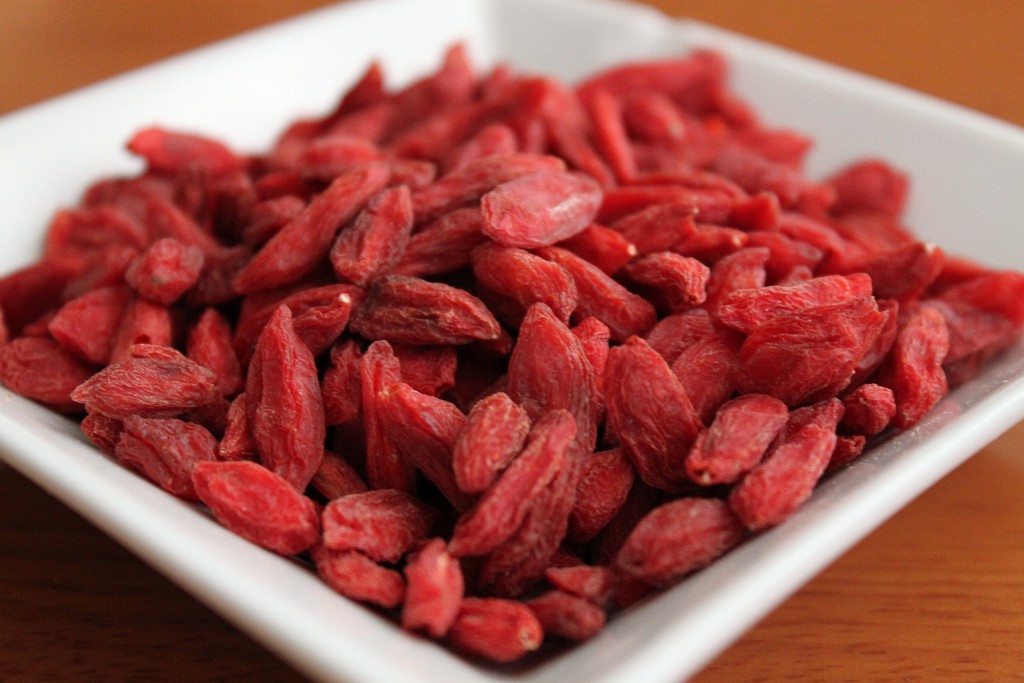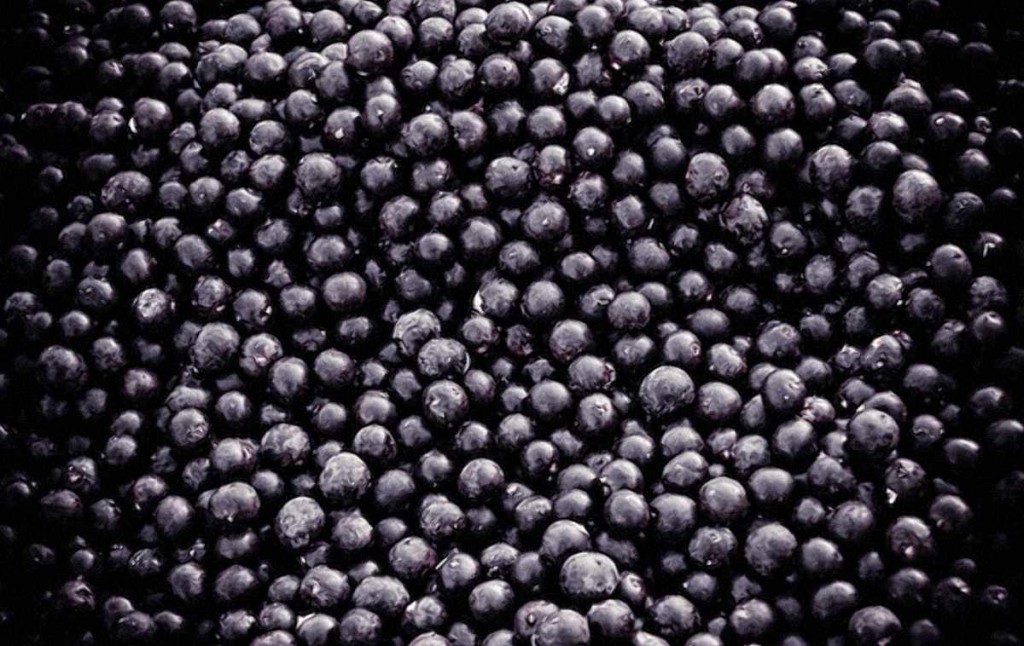As the fitness frenzy continues to sweep across America, superfoods like acai and goji berries seem to be popping up everywhere. Mostly found in juices and smoothies, these berries are promoted as both nutritious and diet-friendly. In snack and drink aisles the words goji and acai are often bolded and highlighted to convince consumers they are making a healthy choice in purchasing these products. But are these so-called superfoods really all they’re cracked up to be? Below, we break down the facts and put an end to all the speculation.
Goji

Photo courtesy of 52kitchenadventures.com
Goji berries, also called wolfberries, are bright orange-red berries from a plant native to China. There, they have been used for many years both as a medicine and to slow the process of aging. Ancient Chinese myth states that goji berries can extend the lifespan dramatically, which is what originally attracted modern-day companies looking to satiate the Western world’s appetite for a natural botox. There happens to be some truth to the Chinese legend: antioxidants, which are abundant in goji, have been proven to reduce damage from free radicals. Free radicals, atoms or molecules with an unpaired electron in the outer shell, injure cells and DNA. When DNA is injured, it causes cells to grow abnormally, which in turn causes all sorts of diseases. In this way, goji can help prevent against diseases like alzheimer’s and cancer. Goji is also rich in vitamin A, believed by many scientists to have anti-aging effects as well. Although there have been no conclusive studies that prove these time machine-like effects are exclusive to goji berries, there is certainly no downside to adding them to your diet. However, if you have pollen allergies or high blood pressure, or take warfarin (a blood thinner) or medicine for diabetes, you may have an adverse reaction and should consult your health care provider before consuming goji berries.
But goji is good for more than simply fending off wrinkles. A nutritionally dense fruit, it contains all essential amino acids and is filled with powerful antioxidants that combat heart disease, boost the immune system and lower cholestrerol. It has the highest concentration of protein of any fruit and is loaded with vitamin C and iron. Studies have shown goji can improve mental health, athletic performance, quality of sleep, and overall happiness. While most of the side effects are inconclusive, it can’t hurt to include some goji in your daily routine in the hopes of fending off illness and securing a more peaceful REM.
Acai

Photo courtesy of centralfloridatropicals.com
Acai berries are also a bit of a mixed bag. From palm trees native to Central and South America, acai berries are packed with antioxidants such as flavonoids and anthocyanins, which contribute to the red-blue hues seen in many fruits. Boasting the same benefits as consuming anything with antioxidants, acai is often advertised as being able to ward off disease and promote overall health. But acai’s real claim to fame is it’s amino and fatty acids, one being monosaturated oleic acid. This specifically helps omega-3’s penetrate the cell membrane to allow hormones and neurotransmitters to flow more efficiently in and out. This is especially important for regulating insulin because high insulin levels create inflammation, a known cause of aging. Acai is also rich in Vitamin E, fiber, protein, calcium, magnesium, potassium and zinc.
The verdict
So it seems the two “superfoods” are a bit of super hype. Although fruits are most certainly instrumental in maintaining a healthy diet, there have been no conclusive studies that support goji or acai berries as successful weight loss catalysts. Yes, they contain disease-fighting capabilities, but so do many other fruits high in antioxidants like blueberries, strawberries, cranberries and many more. In the hopes of staying youthful and neutralizing free radicals to avoid getting sick, add goji and acai into your diet (next time you’re in Evanston, try the white tea acai squeeze at Argo Tea — the acai gives a kick to the white tea and each sip will leave you with a sweet, subtle afterthought of lemonade). But only do so where convenient, as the unique capabilities of these “superfoods” are still undetermined and it seems they might only be notable at best.

Photo by Kirby Barth

